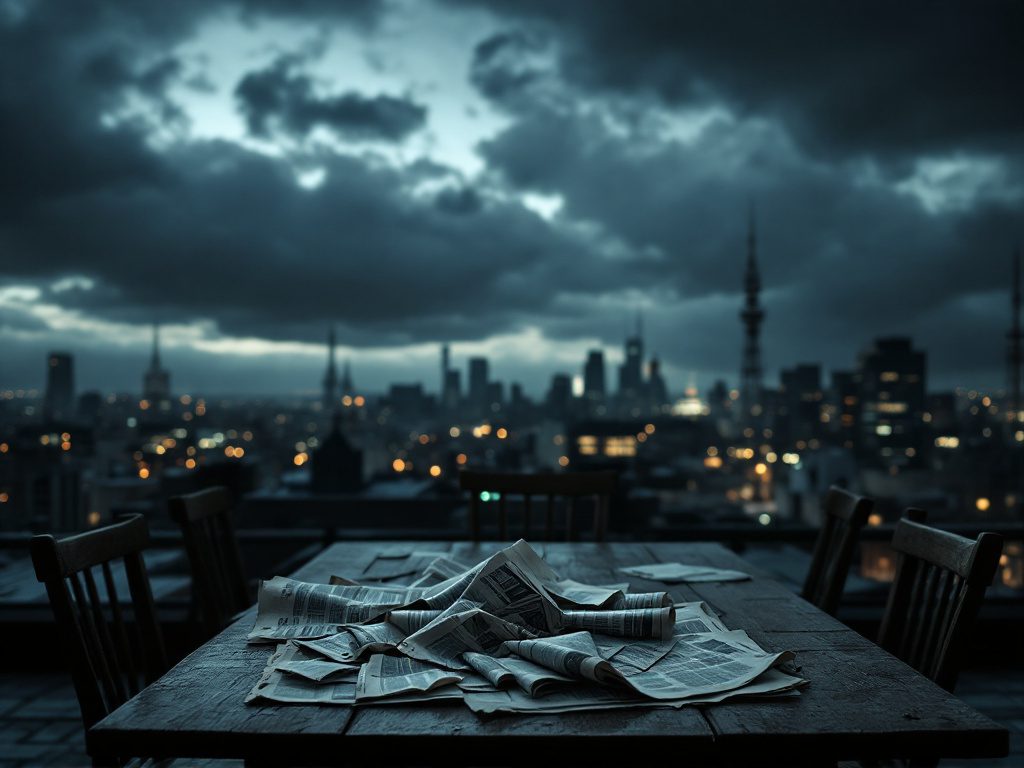The World’s Watchdogs Under Siege
The very foundation of a functioning democracy depends on a robust and independent press. Yet, according to the newly released 2025 World Press Freedom Index by Reporters Without Borders (RSF), watchdog journalism faces its grimmest hour in over twenty years. For the first time since the NGO began tracking global press conditions, the average score has tumbled into “difficult” territory—an ominous downgrade from the previously “problematic” status. RSF’s index, measuring five core pillars of press health—economic, political, legal, sociocultural, and journalist safety—delivers sobering news: over half of the world’s countries now offer a “bad” environment for journalism, and only a handful remain outliers of press liberty.
Just how dire has the landscape become? News outlets are shutting down in nearly a third of the 180 countries surveyed. For legacy media and new platforms alike, financial distress is an existential threat underpinned by shrinking advertising revenue, rising production costs, and the aggressive dominance of tech giants like Google and Meta. According to RSF’s breakdown, the economic indicator saw the sharpest decline—its global average falling to a mere 44.1, an all-time low and the worst score among all measured categories.
Why does this matter? Beyond the numbers, it raises the uncomfortable reality that what you read, watch, and hear is shaped not just by editors and reporters, but by a relentless squeeze of money and influence from advertisers, governments, and platforms. Harvard media researcher Emily Bell told NPR this spring, “When independent journalism becomes financially unsustainable, what remains is vulnerable to capture by those with the deepest pockets or the strongest political motives.”
Europe’s Fractured Front: Spain’s Surprise, Greece’s Crisis
Within Europe—often held as a bulwark for civil liberties and democratic values—the picture is distressingly mixed. Norway, for the umpteenth consecutive year, upholds the gold standard. RSF lauds Norway as the only country with a “good” rating across all five indices, illustrating how strong legal protections, thriving local media, and transparent government policies form a bedrock for journalistic freedom.
Meanwhile, Spain stands out as a rare bright spot, moving up seven places to 23rd—the country’s highest position ever—on the strength of improvements in political, legal, and journalistic safety indicators. Its progress, however, is tempered by enduring vulnerabilities. Legal experts point to the growing threat of SLAPP lawsuits (Strategic Lawsuits Against Public Participation) and “abusive” legal action that seeks not just restitution but the silencing of investigation and dissent. Reporters in Barcelona and Madrid interviewed by El País described a “persistent anxiety” about economic stability, as even the most fortified media brands are not immune to budget cuts and commercial pressure.
Contrast this with Greece, where press freedom has collapsed to 89th place—down another notch from last year—earning international scrutiny after scandals involving illegal surveillance and orchestrated government disinformation. Details unearthed by Politico implicate a politically connected firm, Blue Skies, in running covert propaganda and funding campaigns supporting Prime Minister Kyriakos Mitsotakis’s administration. Despite robust constitutional protections for free expression, systemic problems such as SLAPP suits, overbroad defamation laws, and shadowy ethical guidelines create a chilling effect on investigative journalism.
“What good are press passes and constitutional guarantees if a single lawsuit or illegal wiretap can silence a reporter for good?”
Greece’s government, instead of committing to reforms, has often dismissed these alarming findings—Prime Minister Mitsotakis famously called the RSF report “crap”—while independent voices demand real protections for journalists and an end to state-sponsored intimidation.
From Market Forces to Censorship: A Shrinking Space for Truth
Global trends highlight a sobering pattern: ownership concentration and opaque public aid now jeopardize editorial independence as much as overt violence. Tech titans’ algorithmic newsfeeds have made the distribution of information vulnerable to manipulation and misinformation, as demonstrated by recent elections and conflicts. In a revealing 2023 Pew Research Center study, 65% of Americans expressed at least some concern about the steady disappearance of locally-owned newsrooms and the growing power of partisan conglomerates.
The environmental factors driving these declines are painfully interconnected. Economic fragility breeds dependence on state subsidies or corporate sponsorships, giving both private and public sectors more opportunity to set the agenda—often to the detriment of marginalized communities and dissenting perspectives. In repressive regimes, from China to Eritrea, outright censorship persists, with foreign correspondents expelled and independent journalists jailed or disappeared. Even in formally democratic nations, journalists face legal harassment or outright physical danger. According to RSF, 2024 marked the highest number of journalists murdered or imprisoned in over a decade.
Efforts to arrest this free fall require more than platitudes about “the Fourth Estate.” Grassroots advocacy, global solidarity, and policy reforms remain the last best lines of defense. Civil society organizations, digital-first independent outlets, and press freedom NGOs mobilize with increasing urgency, but face daunting odds. For the United States and other liberal democracies, the report is a call to reexamine the efficacy of existing legal frameworks and invest directly in diverse, community-anchored journalism—because when the lights dim on the global press, democracy itself flickers.

